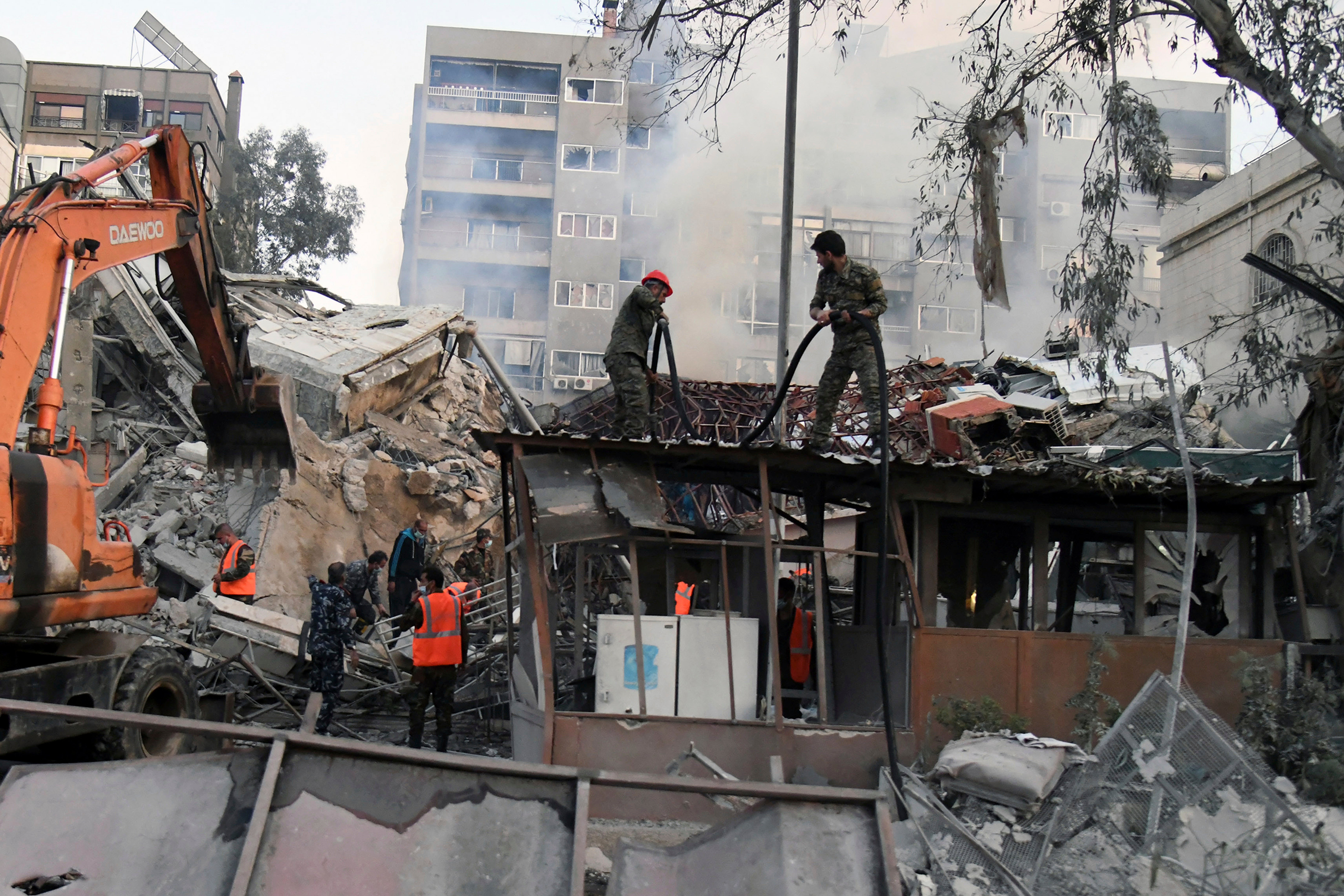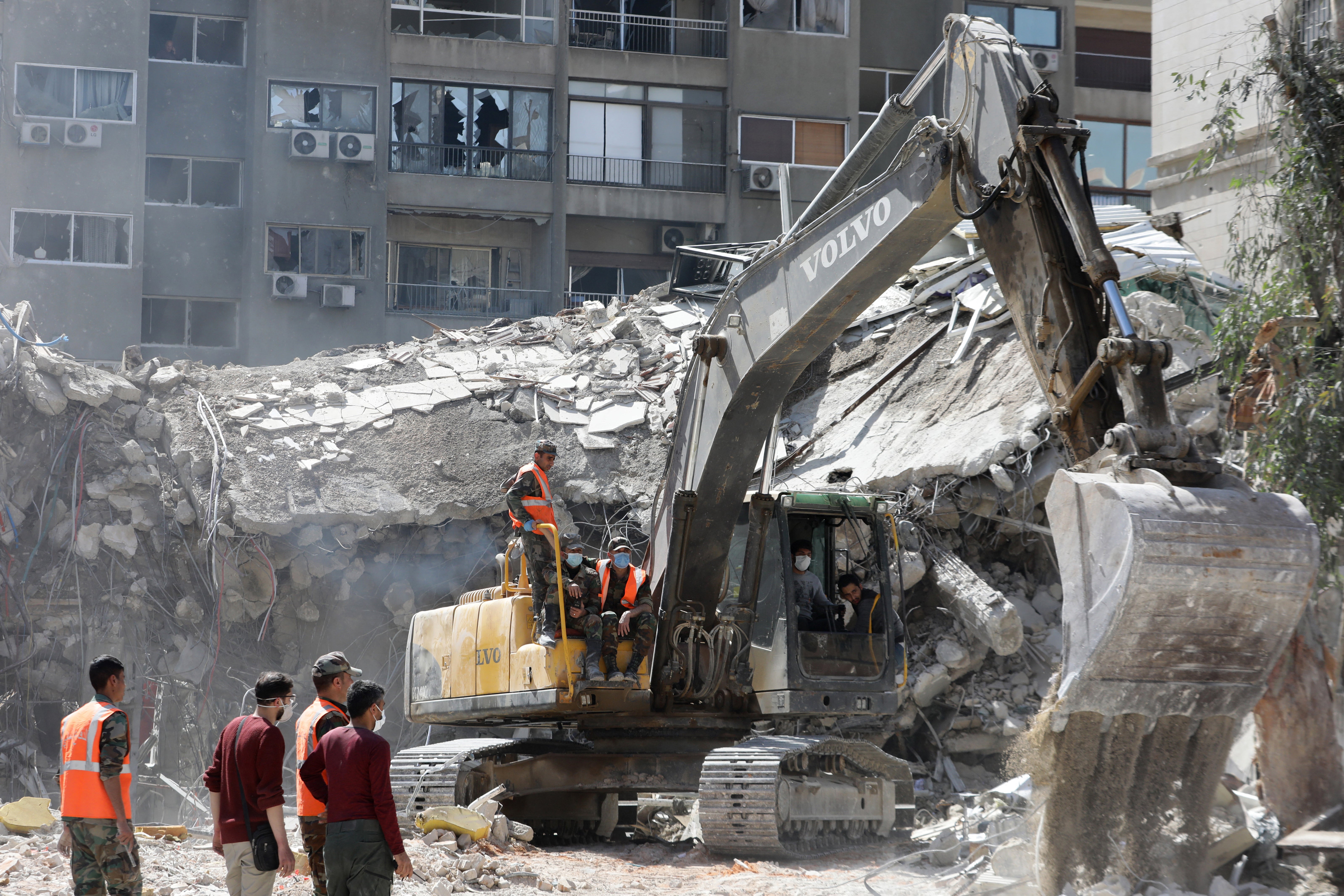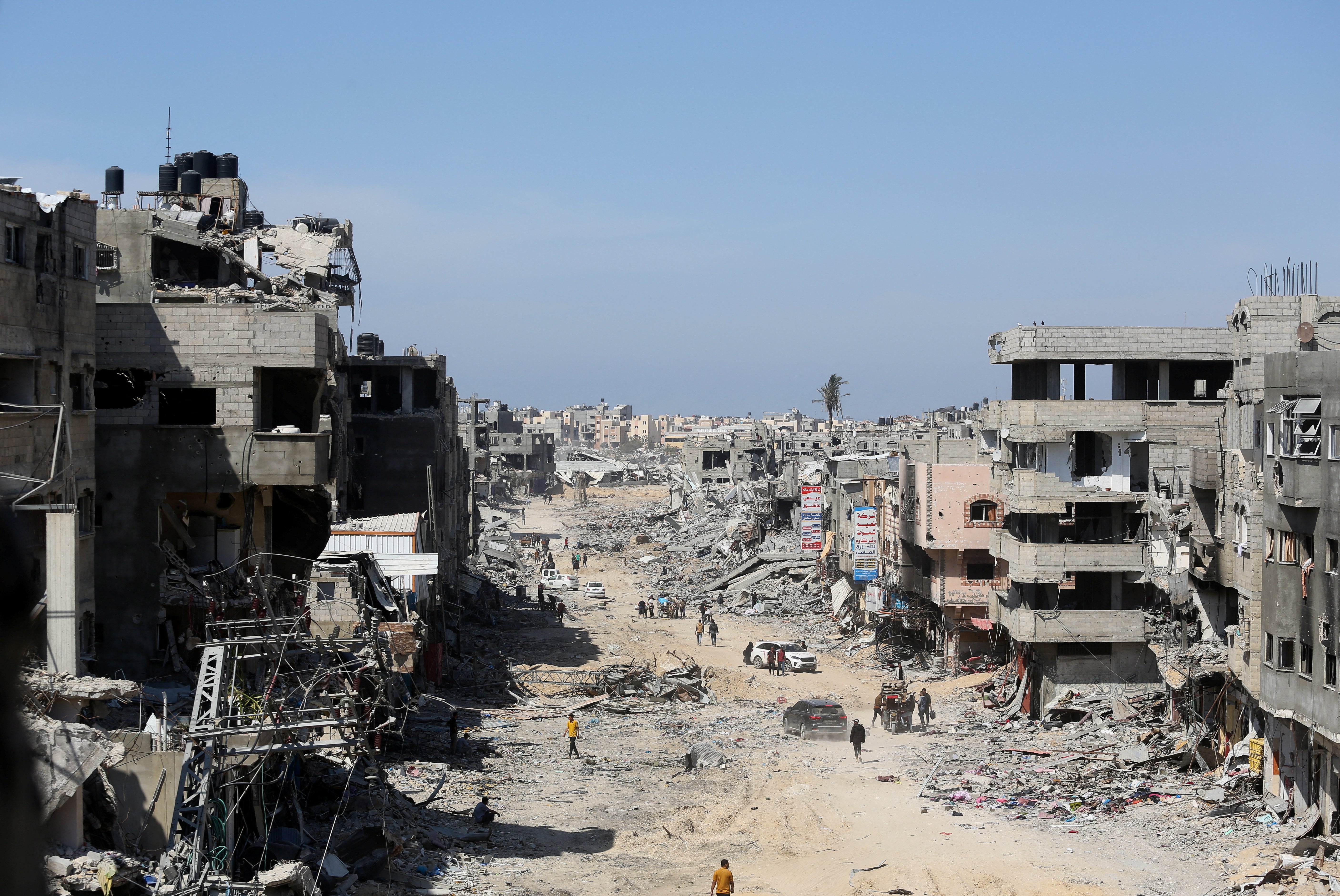Iran warns Israel its embassies are not safe after deadly Damascus strike
Top military adviser says ‘none of the embassies of the (Israeli) regime are safe anymore’

Your support helps us to tell the story
From reproductive rights to climate change to Big Tech, The Independent is on the ground when the story is developing. Whether it's investigating the financials of Elon Musk's pro-Trump PAC or producing our latest documentary, 'The A Word', which shines a light on the American women fighting for reproductive rights, we know how important it is to parse out the facts from the messaging.
At such a critical moment in US history, we need reporters on the ground. Your donation allows us to keep sending journalists to speak to both sides of the story.
The Independent is trusted by Americans across the entire political spectrum. And unlike many other quality news outlets, we choose not to lock Americans out of our reporting and analysis with paywalls. We believe quality journalism should be available to everyone, paid for by those who can afford it.
Your support makes all the difference.A top Iranian military adviser has warned Israel that none of its embassies are safe following a strike in Damascus last week which killed 12 people including two elite Iranian generals.
Regional tensions have threatened to draw the Middle East into a wider conflict as Israel’s war against Hamas marks six months.
Israel has been preparing for an Iranian response to the strike without directly acknowledging its involvement.
The remarks by General Rahim Safavi signalled that the attack on a diplomatic mission could be met with a similar response.
“None of the embassies of the (Israeli) regime are safe anymore,” Gen Safavi, a military adviser to Iran’s supreme leader, Ayatollah Ali Khamenei, was quoted as saying by the semi-official Tasnim agency.

Gen Safavi was speaking at a memorial ceremony in Tehran for the Iranian Revolutionary Guard generals who were killed in the strike which flattened an Iranian consular building in Damascus.
Israeli prime minister Benjamin Netanyahu said Israel is prepared for any response. “Whoever harms us or plans to harm us, we will harm them,” he told a cabinet meeting. “We follow that principle in practice, all the time as well as in recent days.”
The surging regional tensions came six months after the start of the war, which was sparked when Hamas militants charged from Gaza into Israel on 7 October last year, killing 1,200 people, mostly civilians, and taking around 250 captive.
Israel retaliated with fierce bombardments and a ground offensive that has killed more than 33,000 Palestinians, mostly women and children, according to local health authorities.
Also on Sunday, Israel’s military announced it is drawing back forces from the 98th Paratroopers Division who have been operating in the area of Khan Younis in southern Gaza, bringing Israeli troop levels in Gaza to some of the lowest levels since the war began.
The Hamas stronghold has been the main focus of Israel’s offensive in recent months.
The forces withdrew to recuperate and prepare for future operations, while a significant number remain elsewhere in Gaza, said Israeli military officials.
Israel maintains troops in devastated northern Gaza and can send them south when needed.
Israel has vowed a ground offensive on the southernmost Gaza city of Rafah, considered Hamas’s last stronghold.

But the area shelters some 1.4 million people – more than half of Gaza’s population. The prospect of an offensive has raised global alarm, including from top ally the US, which has demanded to see a credible plan to protect civilians.
The war’s six-month mark has been met with growing frustration in Israel, where anti-government protests have swelled and anger is mounting over what some Israelis see as government inaction to help free the remaining roughly 130 hostages, about a quarter of whom are said by Israel to be dead.
Negotiations in pursuit of a ceasefire in exchange for the hostages’ release were expected to resume in Cairo on Sunday. An Israeli delegation led by the head of the Mossad intelligence agency was due to depart for Cairo, according to an Israeli official.
“Israel is prepared for a deal. Israel is not prepared to surrender,” Mr Netanyahu said. “Instead of the international pressure being directed at Israel, which is only causing Hamas to harden its positions, the pressure of the international community needs to be directed at Hamas.”
Pressure has risen for action to be taken immediately, bolstered by an attack on volunteers providing food in Gaza.
“This doesn’t seem a war against terror. This doesn’t seem anymore a war about defending Israel. This really, at this point, seems it’s a war against humanity itself,” chef Jose Andres told ABC, days after an Israeli air strike killed seven of his World Central Kitchen colleagues.
Aid deliveries on a crucial new sea route to the territory were suspended.
“Humanity has been all but abandoned” in Gaza, the International Federation of Red Cross and Red Crescent Societies said in a statement marking six months of war.
The UN and partners now warn of “imminent famine” for more than one million people in Gaza as humanitarian workers urge Israel to loosen restrictions on the delivery of aid overland, the only way to meet soaring needs as some Palestinians forage for weeds to eat.
Mothers who have given birth in Gaza since the war began are especially vulnerable.
The health ministry in Gaza said the bodies of 38 people killed in Israel’s bombardment have been taken to the territory’s remaining functional hospitals in the past 24 hours. Hospitals have also received 71 wounded, it said.
The ministry said 33,175 have been killed since the war began. The ministry does not differentiate between civilians and combatants but says two-thirds of the dead are children and women. Another 75,886 have been wounded.
Israel’s military continued to suffer losses, including in Khan Younis, where the military said four soldiers were killed in a battle with militants.
More than 600 Israeli soldiers have been killed since October 7, including 260 in the Gaza ground operation, according to Israel’s government.
Join our commenting forum
Join thought-provoking conversations, follow other Independent readers and see their replies
Comments